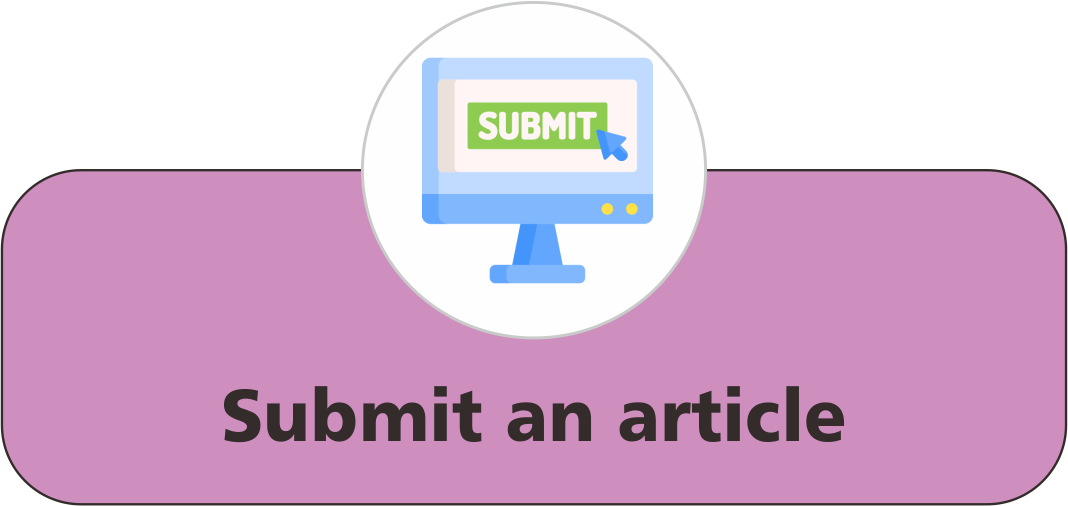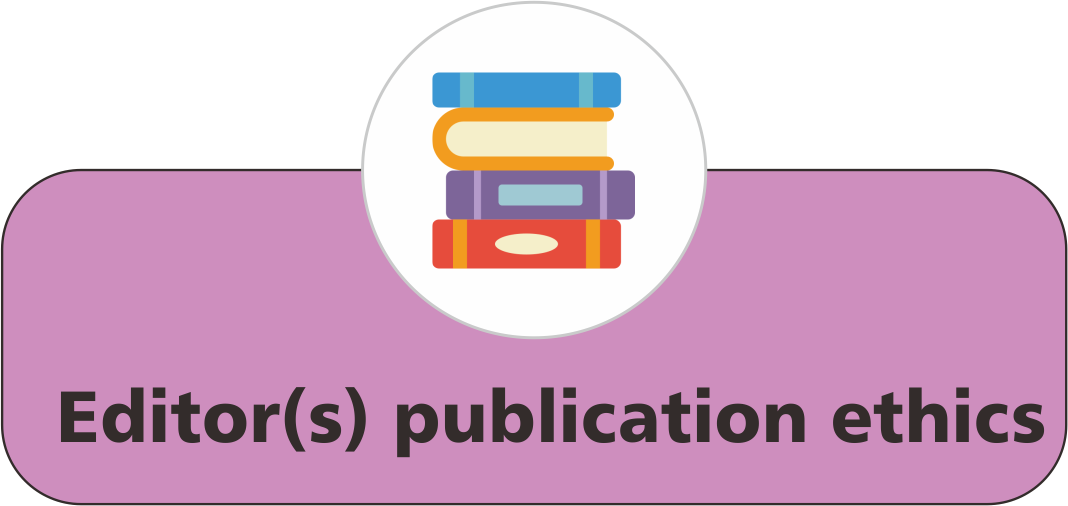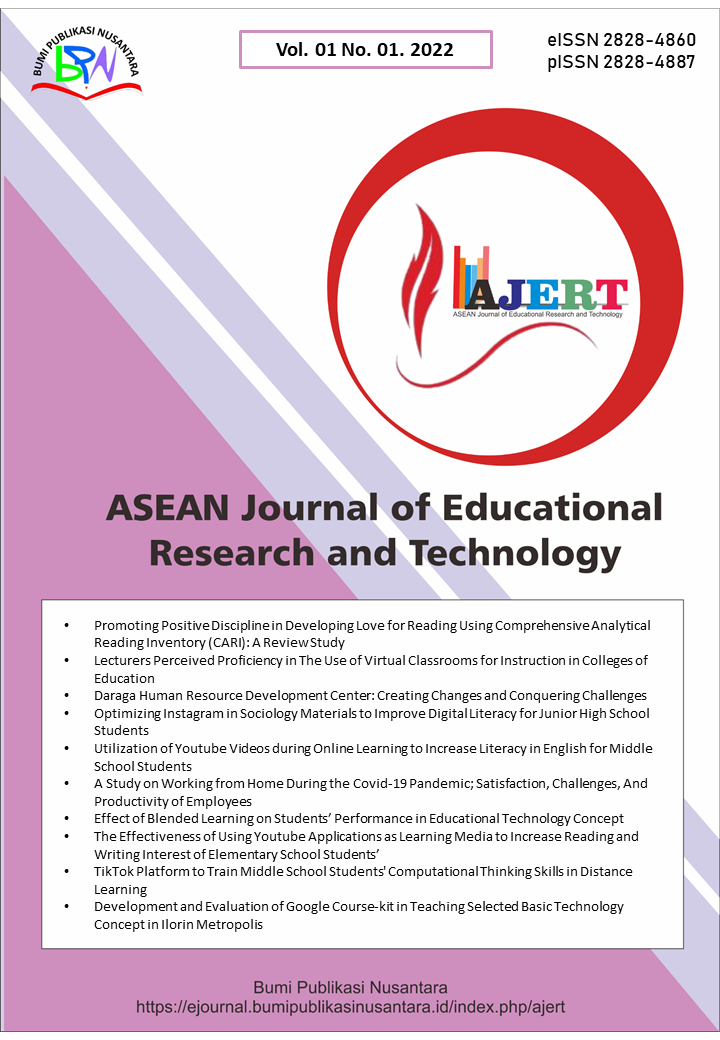Effect of Cross-Over Learning on Pupils' Academic Performance in Civic Education
 ), Fatimat Abiodun Jimoh(2), Abdulmuheez Bolaji Giwa(3),
), Fatimat Abiodun Jimoh(2), Abdulmuheez Bolaji Giwa(3),
(1) Kwara State University
(2) University of Ilorin
(3) Kwara State University
 Corresponding Author
Corresponding Author
Abstract
Keywords
References
Ajaegbu, B. C. (1999). Comparative study on the factors associated with poor academic achievement of secondary school students’ old Onitsha education zone of Anambra state. Journal of Education, Arts and Social Science, 2(1), 28-35.
Chua, K. J., and Islam, M. R. (2021). The hybrid Project-Based Learning–Flipped Classroom: A design project module redesigned to foster learning and engagement. International Journal of Mechanical Engineering Education, 49(4), 289-315.
Day, C., Gu, Q., and Sammons, P. (2016). The impact of leadership on student outcomes: How successful school leaders use transformational and instructional strategies to make a difference. Educational Administration Quarterly, 52(2), 221-258.
Heddy, B. C., Sinatra, G. M., Seli, H., Taasoobshirazi, G., and Mukhopadhyay, A. (2017). Making learning meaningful: Facilitating interest development and transfer in at-risk college students. Educational Psychology, 37(5), 565-581.
Hitt, D. H., and Tucker, P. D. (2016). Systematic review of key leader practices found to influence student achievement: A unified framework. Review of Educational Research, 86(2), 531-569.
Lau, J. Y. (2019). Reflections on the Umbrella Movement: Implications for civic education and critical thinking. Educational Philosophy and Theory, 51(2), 163-174.
Legewie, J., and DiPrete, T. A. (2012). School context and the gender gap in educational achievement. American Sociological Review, 77(3), 463-485.
Lu, K., Pang, F., and Shadiev, R. (2021). Understanding the mediating effect of learning approach between learning factors and higher order thinking skills in collaborative inquiry-based learning. Educational Technology Research and Development, 69(5), 2475-2492.
Merchant, G. (2012). Mobile practices in everyday life: Popular digital technologies and schooling revisited. British Journal of Educational Technology, 43(5), 770-782.
Pandita, A., and Kiran, R. (2023). The technology interface and student engagement are significant stimuli in sustainable student satisfaction. Sustainability, 15(10), 7923.
Prunuske, A. J., Henn, L., Brearley, A. M., and Prunuske, J. (2016). A randomized crossover design to assess learning impact and student preference for active and passive online learning modules. Medical Science Educator, 26, 135-141.
Sulyman H. T (2022). Assessment of pre-primary school children developmental level and material provision towards the attainment of the objectives of policy documents in early childhood education in North Central, Nigeria. International Journal of Academic and Applied Research, 6(7), 135-148.
Sulyman H. T and Babalola A. T (2023). Effect of classroom wall design on pupil’s literacy in Ilorin East Local Government Area of Kwara State. Jurnal Pendidikan Ilmu Sosial, 32(1), 105-114.
Sulyman H. T. and Alawaye R. D. (2024). Influence of pre-primary education on emotional skill acquisition on pupils in Ilorin South Local Government Area of Kwara State. International Journal of Educational Review, Law and Social Sciences, 4(1), 446-456.
Sulyman H. T. and Ayodele O. T. (2024). Influence of teachers’ favouritism on pupil's learning outcome. International Journal of Education Review, Law and Social Sciences, 4(2), 518- 525.
Sulyman, H.T., and Daguduro, O.M. (2020). Closing pupils' achievement gap in mathematics through the use of preparatory homework in Ilorin metropolis, Kwara state Nigeria: Journal of Early Childhood and Primary Education, 9, 130-144.
Sun, D., and Looi, C. K. (2018). Boundary interaction: Towards developing a mobile technology‐enabled science curriculum to integrate learning in the informal spaces. British Journal of Educational Technology, 49(3), 505-515.
Zawadzki, M. J., Shields, S. A., Danube, C. L., and Swim, J. K. (2014). Reducing the endorsement of sexism using experiential learning: The Workshop Activity for Gender Equity Simulation (WAGES). Psychology of Women Quarterly, 38(1), 75-92.
Article Metrics
Abstract View : 446 times
: 446 times Download : 427 times
Download : 427 times
Refbacks
- There are currently no refbacks.
Copyright (c) 2025 Bumi Publikasi Nusantara

This work is licensed under a Creative Commons Attribution-ShareAlike 4.0 International License.









